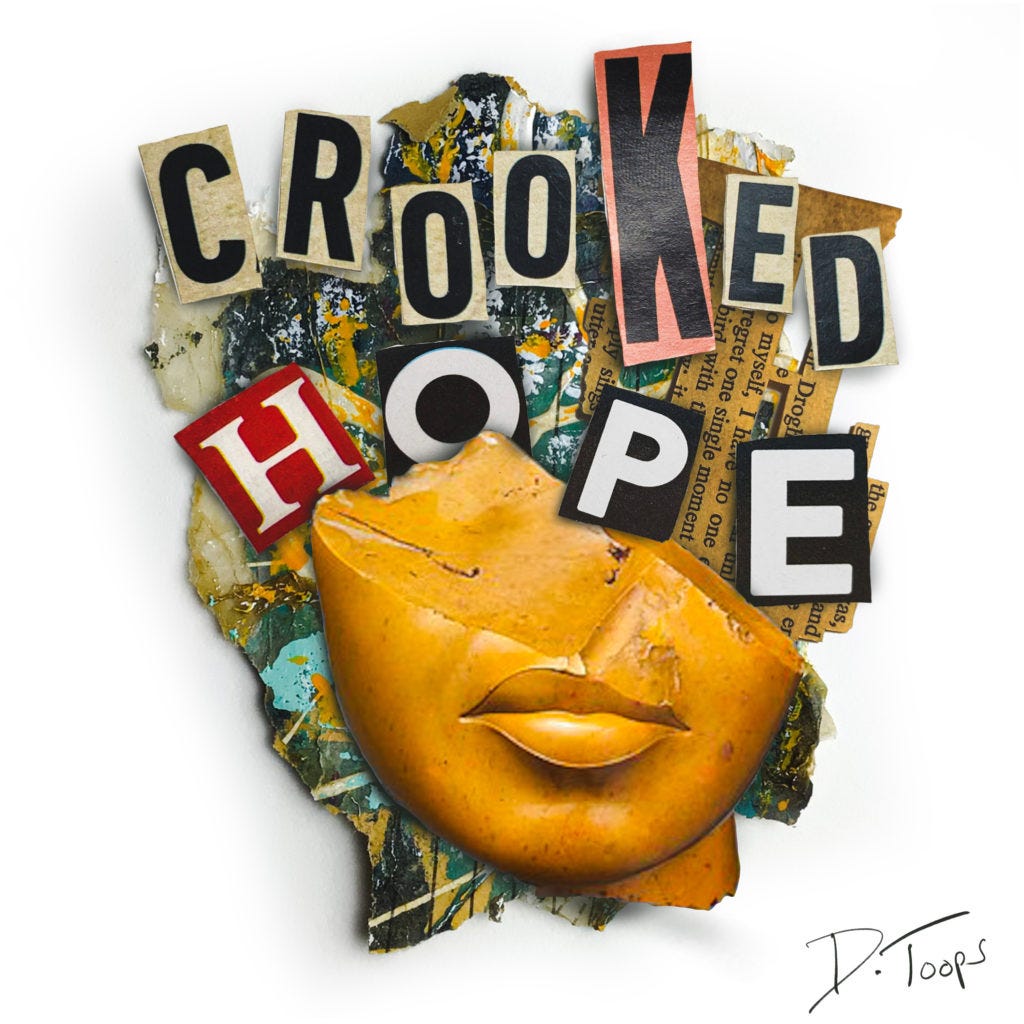A crooked hopefulness...
I can be a lot. Perhaps, I crave a kind of simple living because I've subconsciously convinced myself that if I can just minimize the things I possess then maybe I can minimize the things that possess me. Yet, I've found that no matter how bare my cupboard is made to be, internally I'm still a cluster-fuck of complexity and disarray that not even Marie Kondo can tidy up and clear away.
I harbor a quiet intensity. I can have an overwhelmingly large and looming energy. It be more than some can handle, and more than most would want to. I can be isolated, solemn, severe, distant, and closed-off. I'm slow to warm and difficult to connect with. I'm ferociously passionate in my involvement with the things I care about, and I throw myself fully and fervently into them. And in most of my relationships I have either been too much or not enough.
I'm brutally aware of my foibles and I continue to do the work of trying to smooth-out, or at least dull-down, the serrated edges of myself. Yes, I can be better. Yes, I can do better. But, my efforts to improve will also require a degree of acceptance. There are parts of myself in need of repair, but some of these places of damage and discontent are also places of depth and divinity. There are shattered places in who I am that, in the light of awareness and acceptance, are also the consecrated ground of hallowed shrines. In these places the shards of past failures become holy objects, the remnants of who I have been are sacred relics. As Cheryl Strayed explains, this is "the temple I built in my obliterated place."
The solemnity of my cold and quiet distance may create the appearance of someone disassociative, but come closer and you'll discover that this analytical silence provides me with a keen ability to listen, closely and deeply. My brokenness may mean that my heart is cracked , but that also means that is is wide and ever-open. The weight of my concern is heavy and burdensome indeed, but within the burden is the breadth and depth of an expanding empathy. The pitch of the black that envelops me is uncomfortable and consuming. There are few who are willing to peer into the darkness with an un-averted gaze. Many recoil from the mystery and ambiguity of the dark, but, as John O' Donohue says, "There is an inner depth and texture to the darkness that we never notice until we have to negotiate the absence of light." O' Donohue writes that "Something within us knows the darkness more deeply than it knows the light." I'm beginning to understand that my darkness is not a curse. The black bile coursing through my veins is neither a disease, nor a sickness requiring a cure, it is my greatest strength. this darkness is my gift, my gift to the world.
For some, and in some ways, I will always be too much. For other people, and in other places, i will simply never be enough. This kind of acceptance takes time. It requires frailty and fragility. I take deep breaths that test the capacity of my lungs. I breathe out long and hard, making a wish that the sheer force of the exhalation will blow out the candles of my burning worries and fears. This kind of acceptance is often awkward and clumsy, but it helps me to connect with what Neil Gaiman might call a "crooked hopefulness, a "crooked hopefulness" that knows that the crooked place in me naturally bend toward mercy and compassion.



